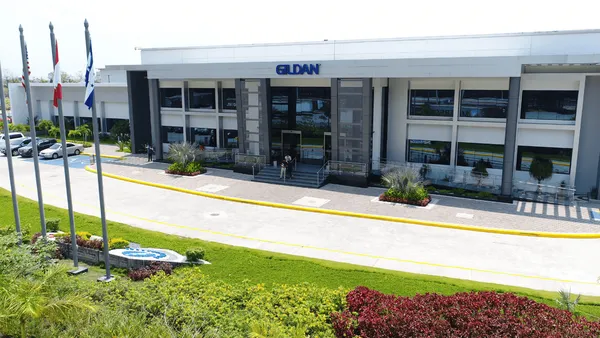Dive Brief:
- Moody's downgraded Guitar Center's credit rating deeper into junk territory last week, from Caa1 to Caa2.
- The retailer of musical instruments is a "solid operator" and has managed modest growth in comp sales and EBITDA over the past three years, but "leverage remains high and cash flow is limited even after two distressed exchanges," Raya Sokolyanska, Moody's vice president and analyst, said in a press release.
- In downgrading the retailer's corporate family rating, as well as ratings for its default probability and senior secured notes, Moody's changed its outlook from stable to negative.
Dive Insight:
Underneath its debt, Guitar Center appears to be a fairly healthy company for a specialty retailer in a changing and fragmented market.
Profits before interest and taxes are growing, if slowly, and Moody's noted projections of comparable sales growth in the low to mid-single digits, which is better than a lot of the retail world. But still, the firm noted that is not enough to reduce Guitar Center's debt load over the next 12 to 18 months. Moreover, the company is heavily dependent on its asset-based revolver "and will have limited remaining availability in the peak seasonal borrowing period," according to Moody's.
That debt is a holdover from leveraged buyouts over more than a decade. The retailer was first acquired by private equity firm Bain Capital, and then Ares Management took control in 2014 in a deal aimed at reducing Guitar Center's debt.
Since Bain's buyout, Guitar Center has made several moves to reduce its debt. Moody's downgrade indicates that analysts expect another restructuring, which could include another deal with its lenders. Indebted retailers throughout the industry have sought to do the same — trading debt out for equity, new debt for old debt, and trying to push out maturities, efforts that can keep a company out of bankruptcy, or postpone it.
Private equity's flood into retail in the past two decades has often ended in disaster. Pinning down cause and effect is difficult given that buyout firms often target companies that are already struggling as turnaround cases. But critics and analysts point to retail's low margins, and quick technological shifts and other changes, as making it a poor match for private equity's playbook of debt-financed buyouts.
Of more than 100 acquisitions retail private equity has made since 2002, more than 20% have filed for at least one bankruptcy, according to Retail Dive analysis. Private equity-owned companies account for the majority of large retail bankruptcies in recent years.
Guitar Center has worked hard to avoid that fate in a market that has experienced declining guitar sales, changing tastes and changing methods of music creation. To reposition itself, Guitar Center has brought in executives to assist in an online push and also a retail vet to spearhead its Music & Arts unit. It's made acquisitions to beef up its B2B business.
To sustain its brand value, Moody's analysts note that the retailer "needs to continuously reinvest in its stores, technology, marketing and infrastructure." A lighter debt load would make that much easier.












